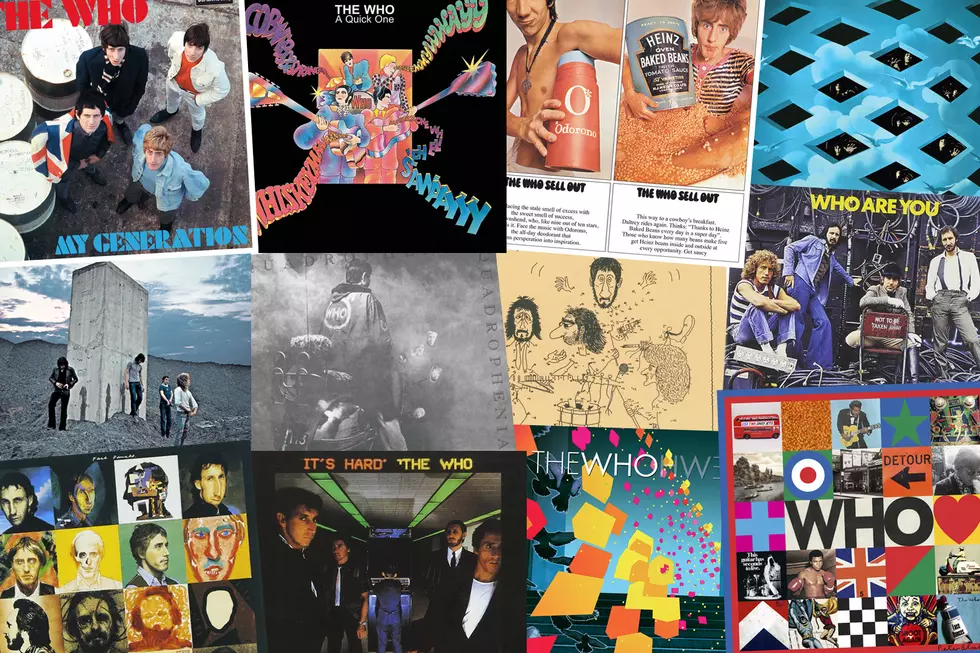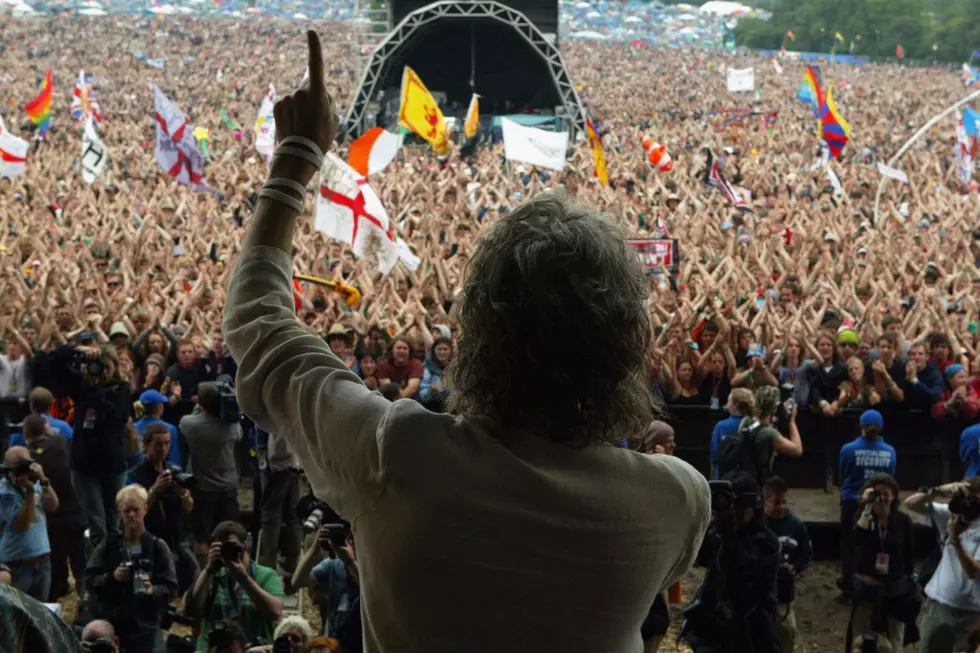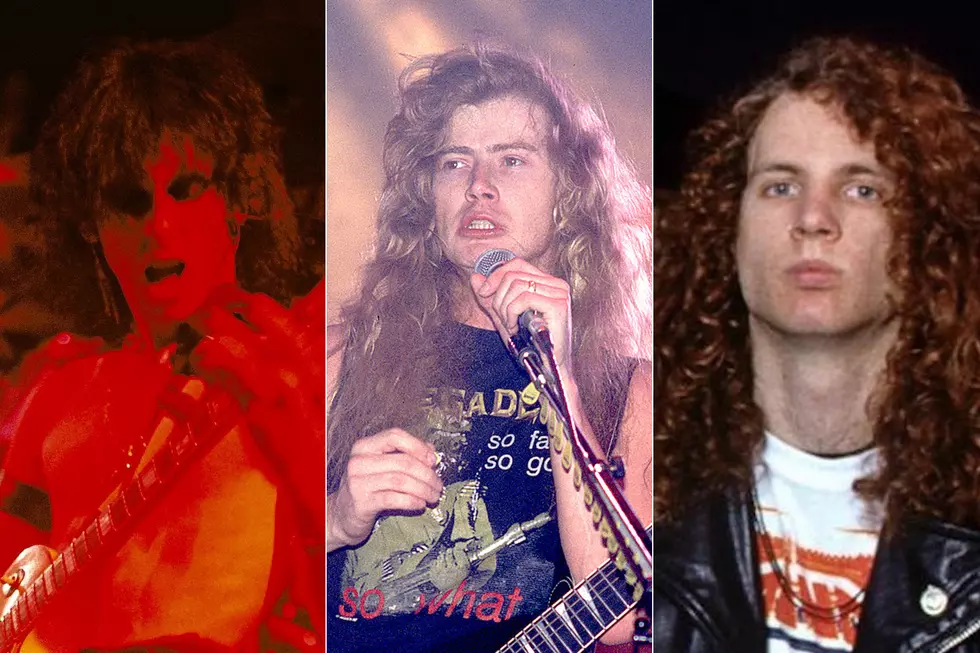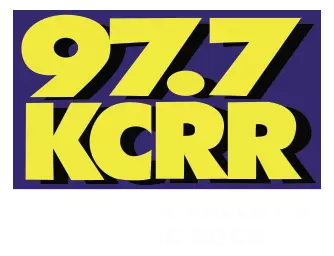
Underrated Who: The Most Overlooked Song From Each Album
Much like investigating overlooked Pink Floyd songs, peeking behind the Who’s hits reveals a strange catalog full of odds, sods and minor masterpieces.
Thanks in part to every CSI show, Pete Townshend’s best-known songs have been imprinted on the brains of millions of Americans. But for every "Who Are You,” "Won't Get Fooled Again," "Baba O'Riley" and "I Can See for Miles," there are 100 other little wonders.
From the band’s first ’60s LPs (Hey, remember when the Who were R&B mods?) to 2019's surprisingly strong Who, we dig into the most underrated track from every Who studio album.
“I Don’t Mind”
From: My Generation (1965)
With all those radio staples and rock operas, it's easy to forget that the Who's early recordings went for maximum R&B. On the band’s debut, they tried their damnedest to emulate James Brown. Of the two Brown covers, “I Don’t Mind” does the hard work — playing tribute to the Godfather of Soul while also pushing the mod sound that dominated England in the early ’60s. Added bonus: those great piano riffs from Nicky Hopkins.
“See My Way”
From: A Quick One (1966)
Depending on where you land as a Who fan, A Quick One is either where the lads lost their way or stepped toward genius. “A Quick One, While He’s Away” previewed Tommy; the cover of “Heat Wave” looked back to their R&B roots. But it’s the nearly-forgotten gem “See My Way” that deserves a second listen. A rare Roger Daltrey composition, the song embodies popular ’60s rock — it could be a lost Beatles, Kinks or Stones cut (or even a forgotten Buddy Holly tune) if not for the radical bass and drums.
“Sunrise”
From: The Who Sell Out (1967)
Besides “I Can See for Miles,” just about every song on the Who’s third album is underrated. Sure, the fake commercials and public service announcements get old after a few listens, but the actual tunes are all gifts. On "Sunrise," Townshend sits down with his acoustic guitar and sings with exceeding tenderness, “You take away the breath I was keeping for sunrise / You appear and the morning looks drab in my eyes.” In the picking and strumming, you can hear him working toward the acoustic approach that gave Tommy so much magic.
“Overture”
From: Tommy (1969)
Like Pink Floyd’s The Wall, Tommy depends on each song building to the next. Except for the one song that miniaturizes the album's entire sweep: the “Overture.” Is it cheating to pick out the track that previews half the record, including "We're Not Gonna Take It,” "See Me, Feel Me" and "Pinball Wizard”? Maybe. But this song's achievement deserves to be highlighted again and again. The album’s opening cut was more complex than anything the Beatles had done; paved the way for the accomplishments of Queen, Yes, Rush, Genesis and modern orchestral composers; and wowed classical music giant Leonard Bernstein.
“[Bernstein] came to see the Who perform Tommy at the Fillmore (in New York City) in 1969, and after the show he burst into the dressing room and he grabbed hold of me and looked me in the eye, this very, very handsome and charismatic man grinning from ear to ear, and he shook me and said, ‘Do you realize what you’ve done?’” Townshend once told the Boston Herald. “He said, ‘It’s fantastic, and you must do more.’”
“Going Mobile”
From: Who’s Next (1971)
Underrated tracks on Who’s Next? Ha! The Who album casual fans know best (and a favorite among diehards), it delivers a slate of towering songs: "Won't Get Fooled Again," "Baba O'Riley," "Behind Blue Eyes." Maybe that’s why “Going Mobile” gets lost. One of the many tracks from the abandoned Lifehouse project, the tune celebrates life on the road, if not on tour — the song never became a regular in the set list. Maybe Daltrey had something to do with that. With Pete talking lead on vocals, the band cut the track without Roger, showing off what the Who could do as a mighty power trio (dig John Entwistle’s slippery bass lines and Moon’s joyous pounding).
“The Punk And the Godfather”
From: Quadrophenia (1973)
How can a song this tremendous be so overlooked? Sure, anyone serious about the Who will cheer on this cut. But your average rock radio fan will skip it in favor of “Love Reign O’er Me” or “The Real Me.” That’s a mistake. With Daltrey and Townshend sharing vocals (always something to look for) and the rhythm section at full power, “The Punk And the Godfather” feels like the quartet’s ultimate thesis statement: It embeds musings about the band’s relationship with its audience and its place in rock and mod cultures into an epic symphony that crashes over and over again — only briefly breaking to let Pete’s wounded voice admit, “I have to be careful not to preach / I can't pretend that I can teach / And yet I lived your future out / By pounding stages like a clown.”
“Blue, Red and Grey”
From: The Who by Numbers (1975)
After three albums dominated by bombast, Townshend goes small. Both sonically and lyrically, Townshend calls back to “Sunrise” — only this time he does so with a ukulele (and Entwistle adding some bright horns). Placed midway through an album (and career) full of doom, heartbreak and fury, “Blue, Red and Grey” offers a rare moment of optimism, a gentle little ditty to smile at as Pete sings, “I like every minute of the day.”
“New Song”
From: Who Are You (1978)
Probably 51 percent of fans cringed when they dropped their needles on the opening track to Who Are You, the band's first studio LP in three years. Modern synths wash over the band — a sheen that could blind a Live at Leeds devotee. But that was the point. Townshend defied conservative radio DJs just looking for bands to repeat themselves. He wrote lyrics full of both cliches and insight. His music melded sharp hooks and intricate turns (was it pop or prog or something completely different?). Maybe it’s a failed joke. Maybe it’s a wonderful critique of a world looking for artists to clone their old sound. Wherever you land, the Who proved with “New Song” that they wouldn’t be limited by trends or expectations.
“The Quiet One”
From: Face Dances (1980)
Meet the new Who, not the same as the old Who. After the untimely death of Moon, the remaining three regrouped with former Faces drummer Kenny Jones for an album at ease with the '80s glossy Top 40 sound. But the LP's sleekness makes Entwistle’s “The Quiet One” stand out. Full of barks and sneering, the Ox’s rave-up recalls the blunt glory of ’70s hard rock. Forget prog or pop, Thunderfingers went for Thin Lizzy or early Scorpions.
“Cry If You Want”
From: It’s Hard (1982)
Lots of people consider It's Hard the band’s worst effort. Even Daltrey has said he thought the album should have been shelved. But Daltrey also thought it wasn't a total waste. He said, "I think the statement, the song that most captures what the Who feel at the moment is a song called 'Cry If You Want.' I think it should have been the single. [...] I think that really does state how it feels to be 38 years old and singing in a rock band called the Who!" And he’s right. The last song on what many thought would be the last Who album nods to styles and sounds from Who’s Next to Who Are You.
“We Got A Hit”
From: Endless Wire (2006)
Surviving members Townshend and Daltrey found the time, energy and friendship to make Endless Wire after a quarter-century break. The album has plenty of big songs that evoke (in the best way possible) Quadrophenia. But the brief “We Got A Hit” punches with real joy. In just one minute and 18 seconds (three minutes for the extended version), the duo dig into their past as mods, rockers, upstarts and gods. Daltrey’s voice, now at full growl, fits Townshend’s words: “We got rich and famous / Papers at our door / We talked a load of crap / They wanted more.” Hell yeah, we wanted more!
“Street Song”
From: Who (2019)
“Fire keep burning, but you can't get out” has a contemporary intensity and immense sadness that can sit next to any Who lyric. Highlighting the band’s 12th LP, a set of treasures and misfires, “Street Song” drew inspiration from the Grenfell Tower tragedy that claimed 72 innocent lives. A subtle homage to “Won’t Get Fooled Again,” the tune proved Townshend’s chops and outrage remained intact — while his humanity has only deepened — five decades after writing, “We'll be fighting in the streets / With our children at our feet / And the morals that they worship will be gone.”
The Who Albums Ranked Worst to Best
More From 97.7 KCRR










